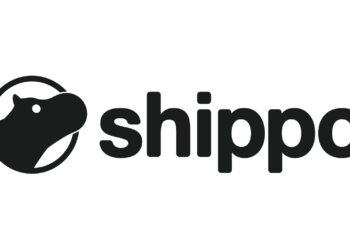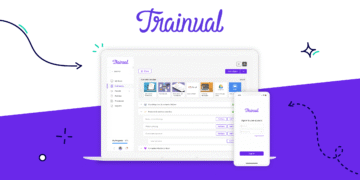Have you ever wondered where entrepreneurs go to buy or sell profitable online businesses quickly and securely? The answer lies in specialized marketplaces designed for digital assets—and one platform stands out as the leader.
Since 2009, Flippa has been the go-to marketplace for buying and selling websites, domains, and apps. What started as a spin-off from SitePoint has grown into the world’s largest platform for digital assets, connecting over 3 million registered users.
With a low $15 monthly seller fee, the platform makes it easy for entrepreneurs to list their businesses. Whether you’re looking for starter sites or established ventures, Flippa bridges the gap between small listings and premium brokerages.
Unlike competitors like Empire Flippers or MotionInvest, this marketplace offers a diverse range of opportunities—from affordable side hustles to high-value investments. Every listing is vetted, ensuring buyers and sellers can transact with confidence.
Key Takeaways
- Largest marketplace for buying and selling digital assets since 2009.
- Over 3 million registered users and affordable seller fees.
- Offers websites, domains, and apps at various price points.
- Vetted listings ensure secure transactions.
- Balances entry-level and premium business opportunities.
Understanding the Flippa Marketplace
Navigating digital asset marketplaces requires understanding their unique transaction models and inventory. Buyers and sellers can choose between three approaches: building and selling, buying to hold long-term, or flipping for quick profits. Each strategy aligns with different risk appetites and investment goals.
Auction Mechanics and Pricing Options
The platform’s auction system offers flexibility. Sellers set either reserve prices (minimum acceptable bids) or absolute auctions (no minimum). In 2023, 42% of sales used fixed-price “Buy It Now” options, appealing to those avoiding bidding wars.
A recent case study highlights success: a content site sold for $24,500 after a competitive 7-bid auction. Buyers can filter listings by revenue multiples to find undervalued opportunities quickly.
Diverse Asset Categories Available
Content websites dominate the marketplace (35%), followed by eCommerce stores (28%) and SaaS platforms (17%). Mobile apps (12%) and domains (8%) round out the inventory. Transferring apps often involves complex approvals, while domain sales are simpler.
Note: 18% of listings get removed for policy violations. Always verify claims before committing to a business purchase.
Why Choose Flippa for Your Online Business Transaction
A thriving buyer network separates top platforms from the rest in online business sales. With 400,000+ monthly buyer visits—26x more than some competitors— Flippa connects sellers with serious investors. Over 63% are first-time buyers, while 29% are serial acquirers hunting for undervalued assets.

Largest Buyer Network in the Industry
Scale matters. The platform’s massive reach means faster sales at competitive prices. A recent $8,200/month dropshipping store sold within 72 hours due to high buyer demand.
Unlike traditional brokers with limited audiences, here listings gain instant visibility. Demographic tools help sellers target ideal buyers, from solo entrepreneurs to investment firms.
Streamlined Listing Process
Approvals take 48 hours—not weeks. The 11-field dashboard simplifies submissions, while built-in tools like valuation calculators reduce guesswork.
Buyers get protection too. A 7-day escrow window verifies claims before funds release. This process balances speed with security, making it a standout for urgent deals.
Key Advantages of Using Flippa
Finding the right platform to sell your online business shouldn’t break the bank or limit your options. Unlike competitors charging 15% commissions, this marketplace offers $0 upfront fees, making it ideal for sellers with tight budgets. Nearly 37% of listings are under $10,000—far more than niche brokerages.
Low Barrier to Entry for Sellers
Listing tiers range from $49 to $499, aligning with business sizes and goals. A revenue multiple calculator helps sellers set fair prices—content sites often fetch 24–32x. For example, one site sold for $18,000 here versus $22,000 elsewhere due to lower fees.
Flexible Pricing Models
The market caters to diverse strategies. Lease-to-own options attract buyers with limited capital, while fixed-price listings skip bidding wars. Crypto domains and AI tools are trending niches. But note: 14% of bids fail, so vet buyers carefully.
Common Challenges Buyers Face on Flippa
Smart investors know that not all digital asset listings are created equal—spotting red flags early saves time and money. Effective due diligence requires understanding where sellers might exaggerate value or hide weaknesses.
Identifying Quality Listings
Nearly 22% of marketplace listings show traffic discrepancies exceeding 40% between reported and verified data. Savvy buyers cross-check analytics with third-party tools like SEMrush against the seller’s Google Analytics.

Watch for spam scores above 30% or heavy affiliate dependence—these quality indicators often predict sustainability issues. One buyer discovered a $56k SaaS app had 70% churn after purchase despite claims of “stable revenue.”
Verifying Revenue Claims
Financial disputes occur in 63% of cases involving inflated claims. Always request 12 months of Stripe/PayPal statements rather than screenshots. The platform’s seller trust scores help, but independent verification is crucial.
Smart buyers use escrow holdbacks—keeping 10% for 90 days protects against undisclosed problems. This due diligence step proved vital when a dropshipping store’s supplier contracts expired two weeks post-sale.
Remember: Authentic quality listings include traffic sources breakdowns and verifiable payment processor data. Question any claims that can’t be backed with raw data exports.
Seller Considerations on Flippa
Maximizing your sale price starts with understanding platform dynamics and buyer behavior. Sellers who optimize their listings and grasp fee structures often close deals faster—and for higher amounts.
Optimizing Your Listing for Maximum Value
Premium listings receive 73% more views, making upgrades a smart investment. Include keyword-rich titles and descriptions to improve search visibility within the marketplace.
Video walkthroughs boost offers by 41%, as they build buyer trust. Highlight revenue streams, traffic sources, and growth potential clearly. Always verify claims with screenshots or third-party tools.
Understanding Flippa’s Fee Structure
The platform charges a $15/month subscription or a 10% success fee upon sale. For a $50,000 deal, total fees amount to $5,150—still lower than traditional brokers.
Use the built-in fee calculator to estimate net proceeds. Factor in transfer costs (DNS, CMS migrations) and tax implications like 1099-K reporting for U.S. sellers.
Flippa vs. Traditional Business Brokers
Choosing between digital marketplaces and traditional brokers requires careful cost-benefit analysis. While both facilitate sales, their fee structures and transaction control differ dramatically.

Cost Comparison
Traditional brokers typically charge 10-15% commissions, while marketplace fees range 5-10%. For a $100,000 sale:
- Broker fees: $15,000
- Marketplace fees: $7,500 (including escrow)
A $140k eCommerce case study showed 68% faster closing times through marketplaces. The streamlined process reduces overhead costs for sellers.
Control Over Transactions
Sellers maintain more control in marketplaces. You manage marketing, negotiations, and closing timelines directly. Brokers often take a hands-off approach after listing.
Key differences include:
- NDA requirements: Brokers enforce stricter confidentiality
- Escrow services: Both offer protection, but marketplace escrow is faster
- Post-sale support: Brokers provide longer-term assistance
Marketplaces win on price and speed, while brokers excel in complex deal support. Evaluate your priorities before choosing a sales channel.
Top Flippa Alternatives for Serious Investors
Not all digital business platforms are created equal—some cater to niche markets with specialized services. For investors seeking curated alternatives, these three platforms stand out for their unique strengths.
Empire Flippers: The Premium Option
With a $2k/month minimum revenue requirement, Empire Flippers focuses on high-value businesses. Their vetting process is rigorous, ensuring only scalable assets make it to their market.
Key advantages include:
- Full migration support post-sale
- Average sale price of $250k+
- Dedicated broker assistance
MotionInvest: Niche Site Specialists
Specializing in content sites, MotionInvest offers a 48-hour purchase guarantee. A recent $8k site flipped in just 11 days, showcasing their fast turnaround.
Their niche focus means:
- Lower fees than general platforms
- Pre-vetted traffic/revenue data
- Ideal for first-time buyers
FE International for SaaS Businesses
With 83% retention rates, FE International dominates SaaS sales. Their alternatives appeal to investors wanting recurring revenue models.
Notable features:
- $5k–$100k investment range
- In-depth technical due diligence
- Global buyer network
Due Diligence Checklist for Flippa Buyers
Smart buyers know that thorough verification separates profitable deals from risky purchases. Nearly 67% of failed transactions lack proper Google Analytics access—highlighting the need for structured due diligence.
Essential Documents to Request
Start with bank statements—they reveal true revenue. Next, analyze traffic sources: organic vs. paid ratios impact sustainability. Demand 12 months of raw data, not summaries.
Verify legal and tech details too. Trademark searches and CMS audits (plugins, hosting) uncover hidden risks. Always check employee contracts and supplier dependencies.
Red Flags to Watch For
Inconsistent traffic patterns or spam scores above 30% signal quality issues. Reject listings with vague claims like “untapped potential” but no proof.
Escrow holdbacks protect you. Hold 10% for 90 days if the seller hesitates, walk away. Real deals welcome scrutiny.
Maximizing Your Success as a Flippa Seller
The difference between a quick sale and lingering listings often comes down to presentation. Sellers who optimize their approach see faster deals and higher offers. Focus on two pillars: crafting irresistible listings and mastering buyer interactions.
Creating Compelling Listings
Listings with videos sell 22% faster. Start with high-quality visuals—photos should be 1200px minimum to showcase details. Use a proven template: headline, revenue proof, traffic sources, and growth potential.
Highlight conversion elements like:
- Upsell opportunities (e.g., unused domains)
- Clear monetization breakdowns
- Third-party verified metrics
Effective Buyer Communication Strategies
Buyers expect 93% response rates. Set a 48-hour reply rule for FAQs. Use a negotiation calendar to track milestones like due diligence periods.
Post-sale, request ratings promptly. Happy buyers often leave reviews that boost future success. Remember: transparency builds trust—and trust closes deals.
Pricing Strategies for Online Businesses
Setting the right price for your online business requires balancing market trends and asset value. Whether you’re selling a content site or SaaS platform, valuation methods directly impact your sale timeline and final profit.

Calculating Revenue Multiples
Industry benchmarks show content sites typically sell for 24-36x monthly profit. SaaS businesses command higher valuations at 3.5-5.5x annual revenue. These multiples vary based on:
- Traffic sources: Organic search dominance increases value
- Business age: Established assets fetch premium multiples
- Growth trends: Upward trajectories justify higher prices
Two valuation models dominate:
- Discounted Cash Flow (DCF) for predictable earnings
- Seller’s Discretionary Earnings (SDE) for owner-operated businesses
When to Consider Auction vs Fixed Price
Fixed-price listings close 19% faster but may leave money on the table. Auctions work best for unique assets with uncertain market value. Key considerations:
Budget-conscious buyers prefer fixed prices. Set yours within 10% of comparable sales. For auctions, reserve prices at 80% of target yields the best bidding activity.
Failed auctions? Relist with a 15% price drop and enhanced marketing. The marketplace’s 2024 data shows second attempts succeed 62% of the time with adjustments.
Conclusion: Is Flippa Right for Your Needs?
Deciding whether to use this marketplace depends on your goals. Small online business owners benefit most—deals under $50k close faster with lower fees. For larger ventures, premium brokers may offer better support.
Buyers gain access to diverse listings but must verify claims carefully. Sellers enjoy quick setup and broad exposure. Weigh risks like bid failures against the platform’s convenience.
Next steps? Prepare financial docs if selling or research niches if buying. The market favors prepared users. As trends shift toward AI and SaaS, early movers will find the best opportunities.
FAQ
How does the auction system work on Flippa?
Sellers list their digital assets with a starting bid or fixed price. Buyers place bids, and the highest offer wins. Auctions typically run for 7-30 days, with extensions if bids come in late.
What types of online businesses can I buy or sell?
The marketplace includes eCommerce stores, content websites, SaaS businesses, domain names, and apps. Listings range from starter sites to established ventures with proven revenue.
Why should I use this platform instead of a traditional broker?
You get direct control over pricing and negotiations without high broker fees. The open marketplace also provides access to more buyers and sellers globally.
How do I verify a website’s revenue claims before buying?
Request Google Analytics screenshots, bank statements, or third-party verification through services like Empire Flippers’ vetting process. Cross-check traffic stats with SimilarWeb.
What fees should sellers expect when listing a business?
The platform charges a success fee (10-15% of sale price) plus optional listing upgrades. No upfront costs for basic auctions, but premium placements have fixed fees.
Are there alternatives with stricter vetting than Flippa?
Yes. Empire Flippers specializes in pre-vetted, high-value businesses. MotionInvest focuses on content sites, while FE International handles SaaS and tech acquisitions.
What documents are crucial for due diligence?
Essential items include profit/loss statements, traffic reports, supplier contracts, and operational manuals. For eCommerce, review Shopify/Amazon seller central data.
How can sellers increase their chances of a successful sale?
Use professional photos, video walkthroughs, and transparent financials. Price competitively based on 24-36x monthly net profit and respond quickly to buyer questions.
When should I choose an auction over a fixed-price listing?
Auctions work best for unique assets with uncertain market value. Fixed prices suit established businesses where the seller has a clear target valuation.





